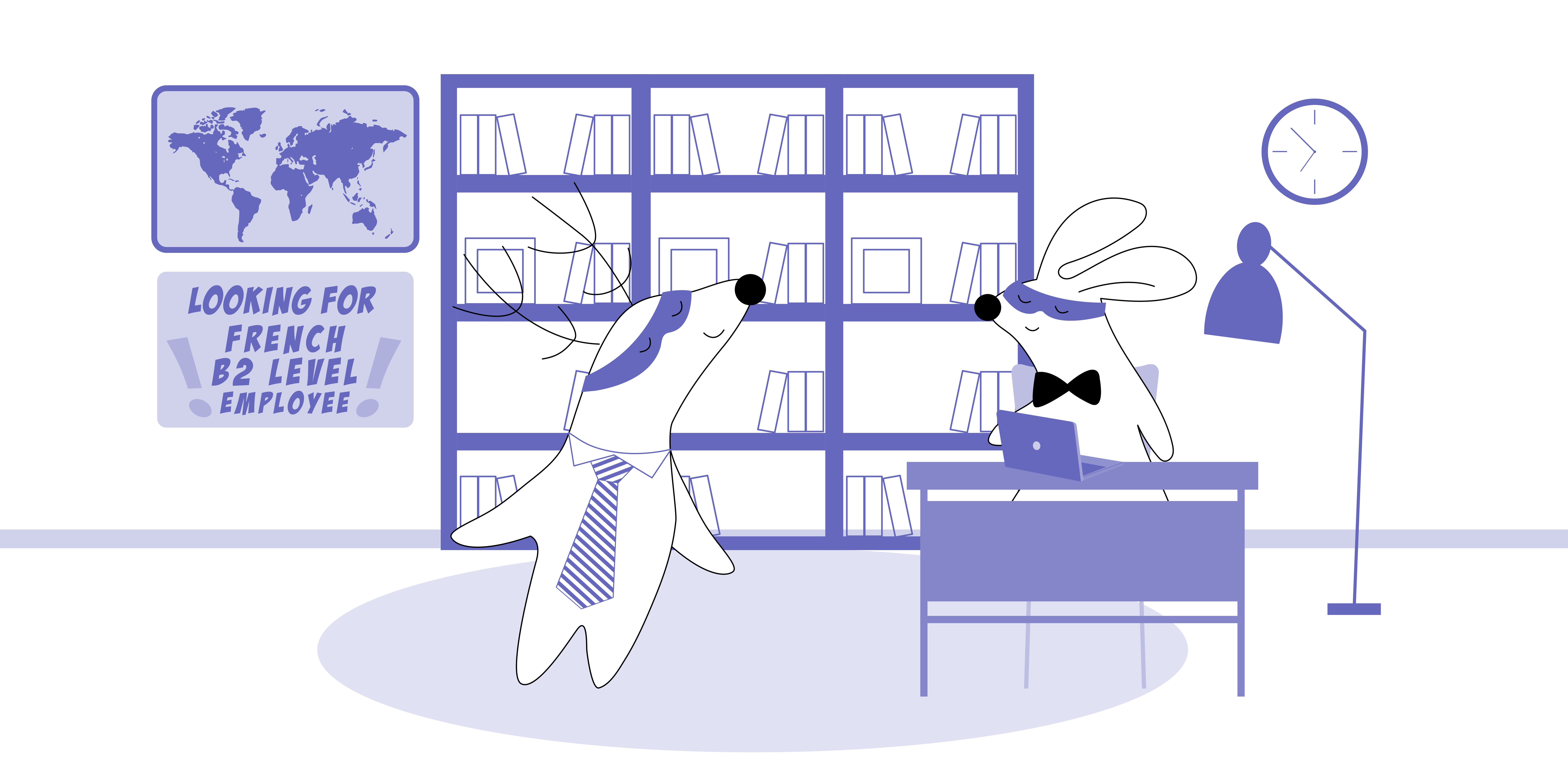
Are you ready to take your French language skills to new heights? Of course, you are! It's time to rise to the challenge and ace the best French level test — but which one should you choose?
Fear not, mon ami! We're here to help you navigate your way through the world of French language assessments. In this article, we'll provide a brief overview of several of the most respected and widely-recognized French exams, detailing what makes each test unique.
But, most importantly, we'll help you choose the right one for your particular studying needs and provide tips on preparing for the exam. So, grab a café au lait, sit back, and let's dive in!
Learn French with Langster
French Level Tests Options
There are several widely used French level tests out there for you to choose from. Below, we provide quick breakdowns of these commonly recognized tests to help you identify the one that is the best solution for you. After all, picking a suitable French test depends greatly on the reason why you need these test results in the first place.
For instance, an ordinary placement test would be enough to identify your current French level to sign up for a French language course. However, if you plan to enroll in a French university, you will need something more considerable than a random online French test.
We discuss each option in more detail in our separate post on French proficiency tests, covering the structure, passing score, overall recommendations, and preparation tips for each. If you find a test or two here, that seems like it might be the right fit for you, head to our other post for more information! So, let’s have a look at your options first.
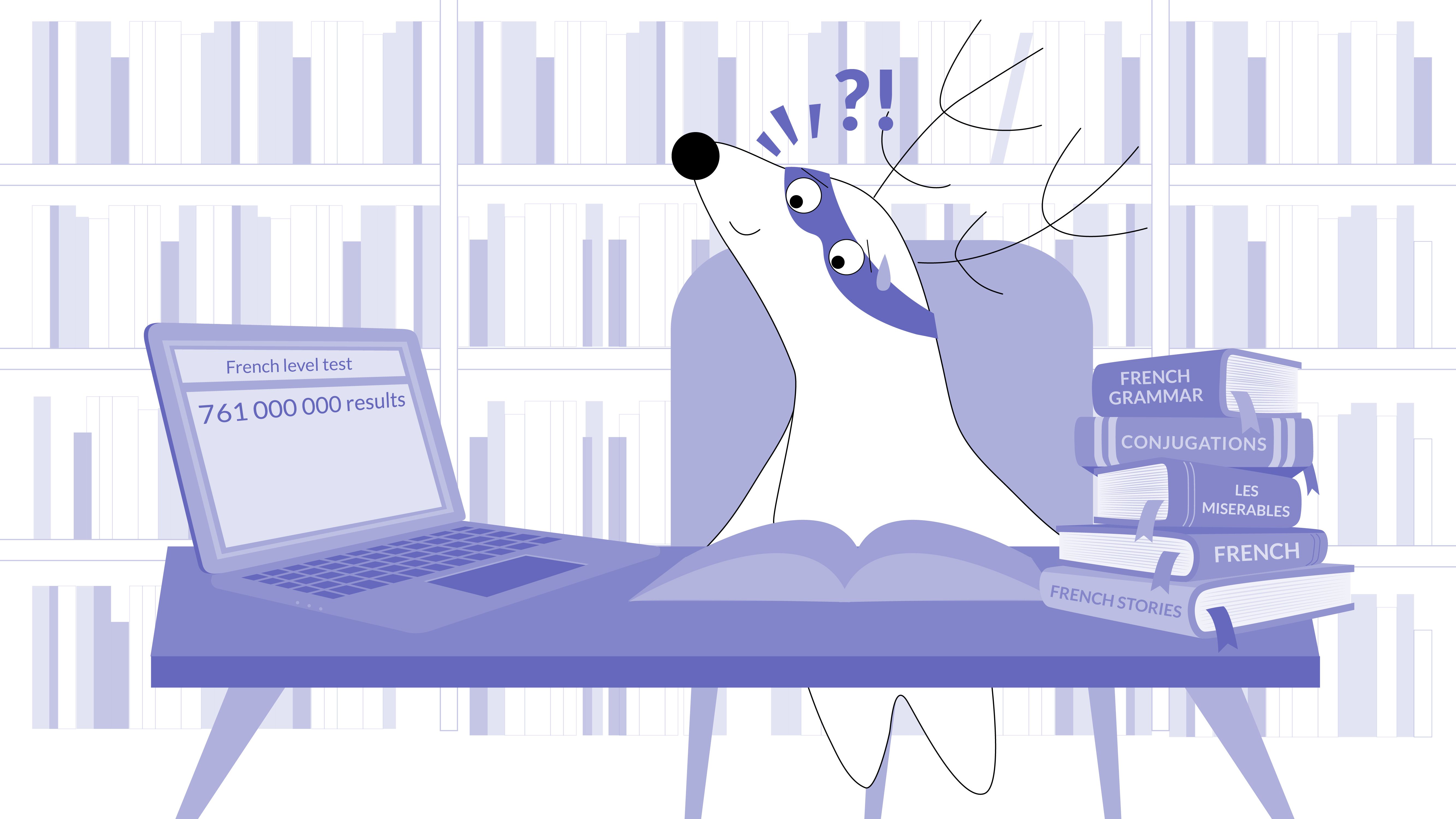
DELF & DALF — Diplômes d'études en langue française
The DELF (Diplôme d'études en langue française) and DALF (Diplôme approfondi de langue française) are official diplomas awarded by the French Ministry of Education. They're suitable for individuals of all ages, including students, employees, and tourists.
These exams measure a candidate's proficiency in French across four key communication skills: listening, reading comprehension, writing, and speaking.
There are six levels in total:
- A1 and A2 for beginners,
- B1 and B2 for intermediate learners,
- C1 and C2 for advanced speakers.
The exams are aligned with the Common European Framework of Reference for Languages (CEFR). Each level corresponds to a specific stage in the language learning journey, so you can choose the appropriate test depending on your current abilities.
TCF — Test de Connaissance du Français
The Test de Connaissance du Français (TCF) is another popular French language test administered by France Education International (FEI).
This exam has three primary versions:
- TCF IRN for applying for French nationality or residency,
- TCF Canada for immigrating to Canada or obtaining Canadian citizenship,
- TCF for Québec for emigrating to Québec,
- TCF pour DAP for studying in France.
The TCF evaluates candidates' language abilities in listening, reading, speaking, and writing.
The TCF is a computer-based test that adapts to your level as you progress through the exam. There's no pass or fail; instead, your final score reflects your proficiency on a scale that maps to the CEFR levels (A1 to C2).
TEF — Test d'évaluation de français
The Test d'évaluation de français (TEF) is another widely-recognized French proficiency test designed by the Paris Chamber of Commerce and Industry. This exam is particularly useful for those seeking to immigrate to Canada, as it's often required for economic immigration or citizenship applications.
The TEF measures your knowledge in four areas: listening, reading, writing, and speaking. It uses a unique 7-level scale that ranges from 0+ (basic discovery) to level 6 (complete mastery).
The test is available in both paper-based and computer-based formats, providing flexibility for candidates in terms of exam-taking preferences.
Alliance Française Exams
The Alliance Française is a global organization dedicated to promoting the French language and culture worldwide.
In addition to offering language classes, they also provide a range of French proficiency tests designed for various purposes. These include the DAEFLE (Diplôme d'Aptitude à l'Enseignement du Français Langue Étrangère), which is specifically tailored for teachers of French as a foreign language.
Other exams offered by the Alliance Française include the abovementioned TEF, TCF, and DELF/DALF. While these tests are administered by separate organizations, as mentioned earlier, the Alliance Française serves as an official examination center for these exams in many countries.
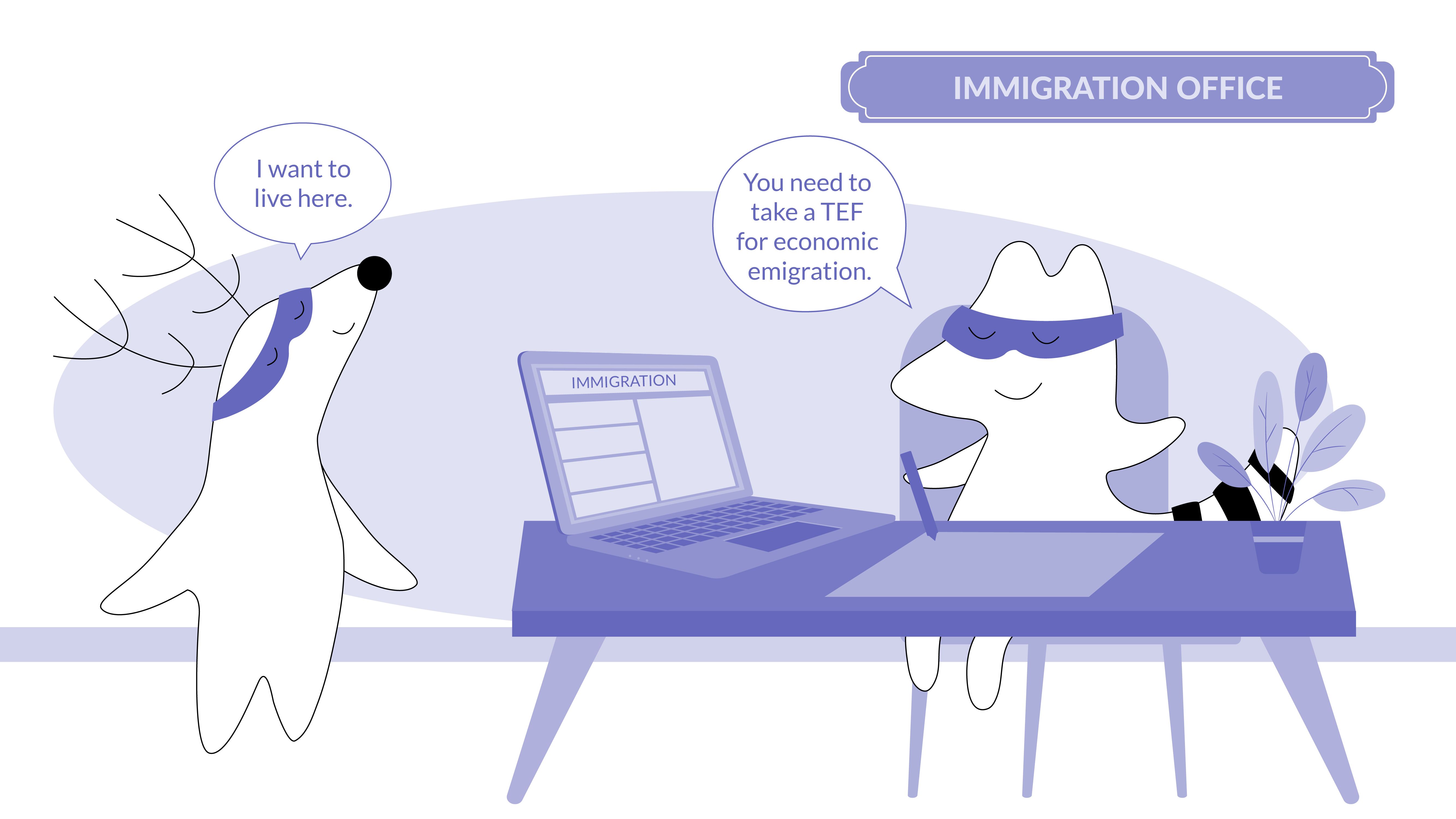
Choosing the Right Test for Your Needs
When deciding which French-level test to take, consider your specific goals and needs.
Are you looking to gain French nationality or immigrate to a French-speaking country? The TCF or TEF might be the best choice. If you're focused on personal or professional development, the DELF/DALF is more suitable.
For educators or individuals interested in teaching French as a foreign language, the DAEFLE offered by Alliance Française is an excellent option.
Before making your decision, it's crucial to research each test thoroughly and understand the format, scoring system, and recognition. Here are some key factors to consider when choosing the right French-level test for you:
- Purpose. Determine the primary reason for taking the exam. Is it for immigration, education, employment, or personal development? Different tests serve different purposes and are recognized by various institutions and organizations.
- Test format. Familiarize yourself with the structure of each exam, including sections dedicated to listening, reading, writing, and speaking skills. Some exams may be computer-based, i.e., an online French level test (like the TCF), while others offer paper-based options (such as the DELF/DALF).
- Scoring system. Understand how each test measures your proficiency in French. While some exams use a pass/fail system, others provide a score that corresponds to CEFR levels.
- Registration process and fees. Consider the ease of registration, accessibility of testing centers in your area (or availability of an online option), and associated costs for each exam.
- Preparation materials. Ensure that ample resources are available for your chosen test in terms of study materials, preparatory French courses, and tutoring options.
- Test frequency. Check how often the exams are held each year and whether their schedule aligns with your availability.
- Validity period. Be aware that some tests have an expiration date on their results (e.g., TCF test results continue to be valid for two years). Consider if this timeframe suits your goals and requirements.
Additionally, consult with institutions or organizations that require proof of your French language skills to ensure you select the appropriate exam. Reach out to universities, employers, or immigration authorities for guidance on which test they prefer or recognize.
You may also benefit from discussing your options with language teachers, tutors, or fellow learners who have experience with these exams.
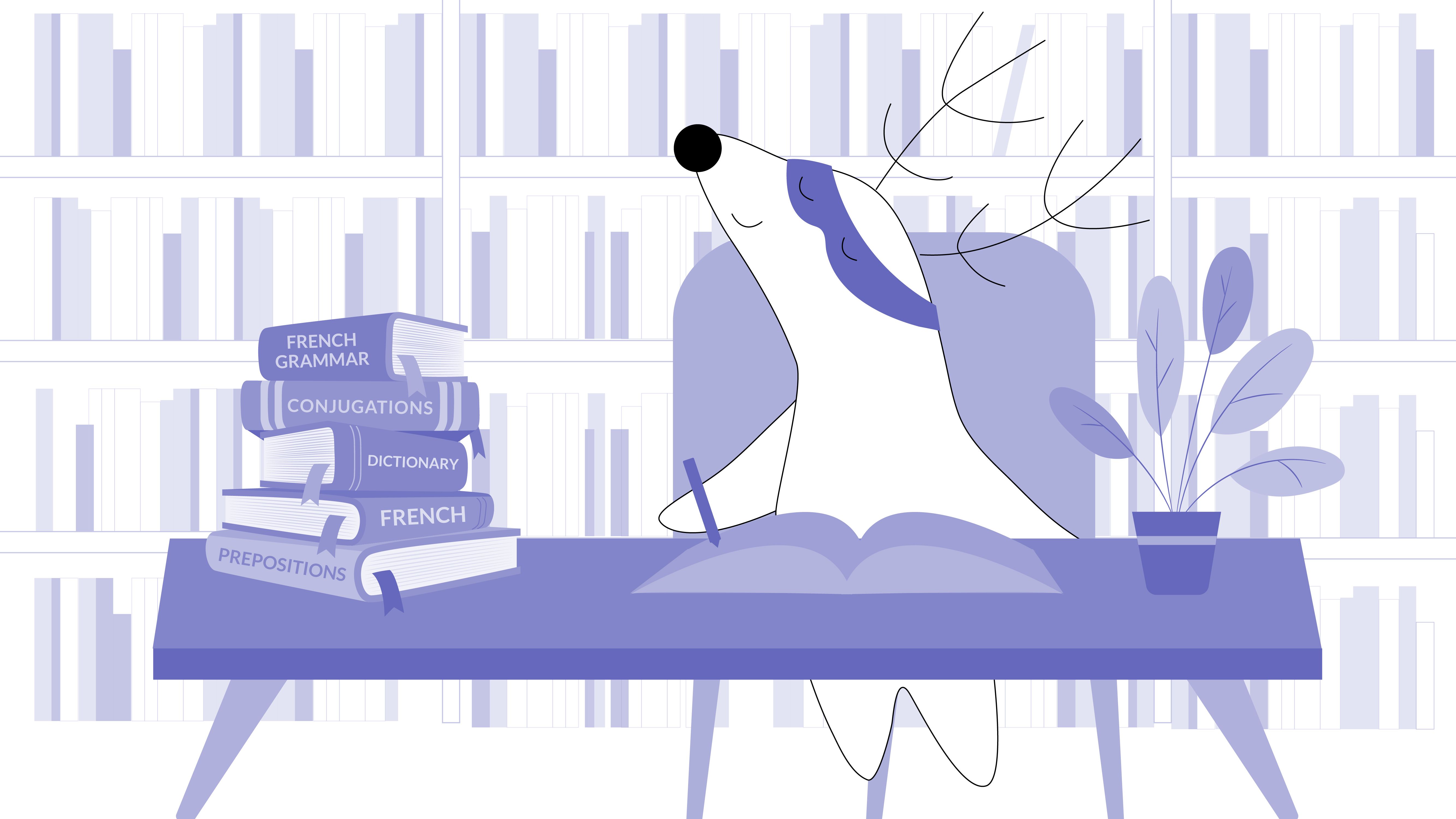
Preparing for Your Exam
Preparing for such a test involves more than just brushing up on French grammar rules and vocabulary. Familiarize yourself with the test format, including the types of questions and time limits. Regular practice with sample exam materials, mock tests, and listening exercises will help you develop the necessary skills and confidence.
Consider enrolling in a preparatory course or seeking guidance from a tutor who specializes in your chosen exam. Remember: practice makes perfect. So, don't be afraid to challenge yourself with progressively harder materials as your language skills improve.
Staying Motivated and Focused
Learning a language is a journey, and acing a French level test is just one milestone along the way. Stay motivated by setting realistic goals and celebrating your progress. Surround yourself with French content — movies, music, books, and conversation partners — to immerse yourself in the language and learn French in context.
Remember that setbacks and challenges are a natural part of the learning process. Embrace them as opportunities to grow and refine your language skills, and never lose sight of your ultimate goal: becoming a confident and proficient French speaker.
The Bottom Line
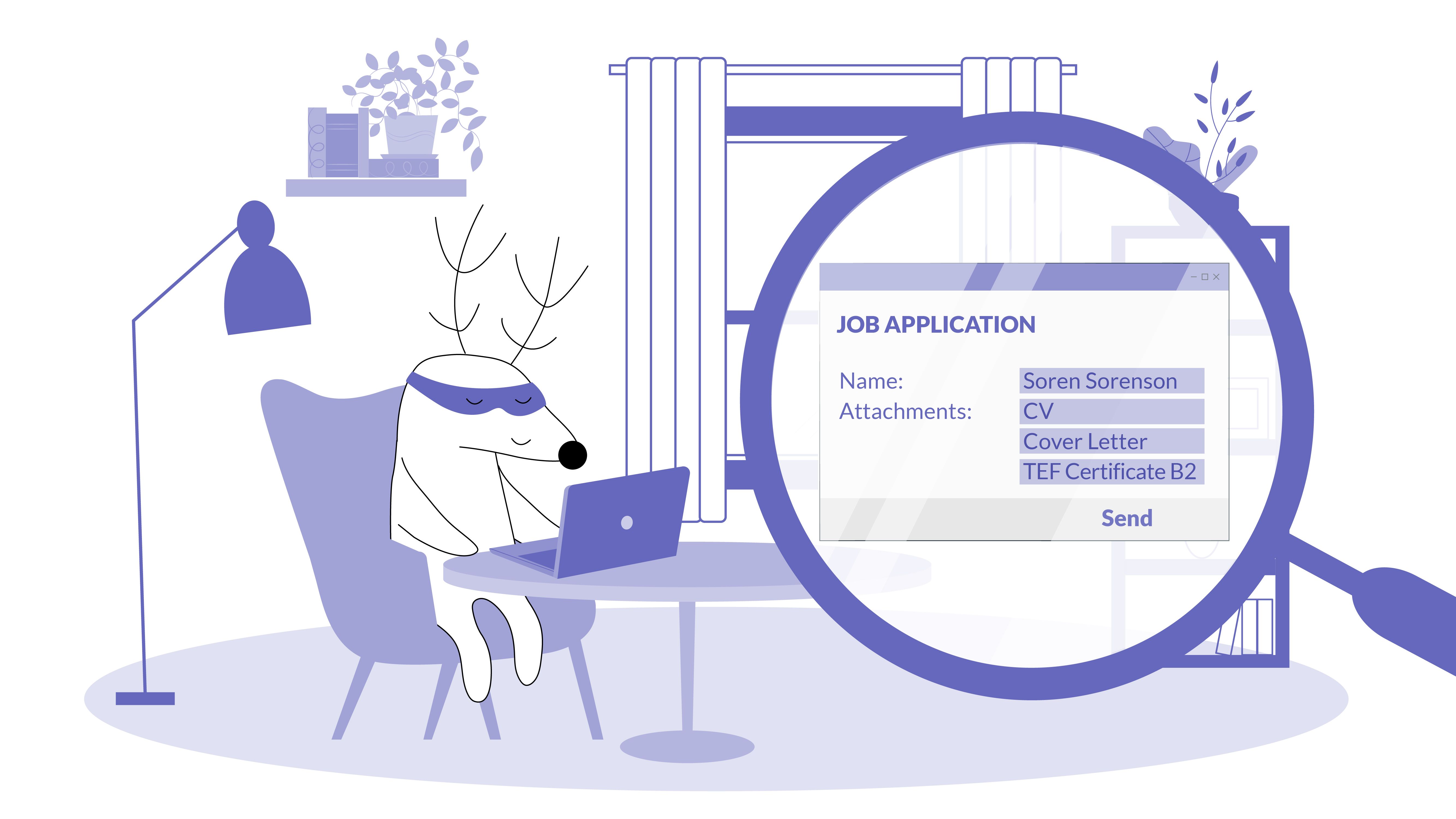
Selecting the right French level test involves a careful assessment of your individual goals and needs, as well as a thorough understanding of each exam's purpose, format, scoring system, and recognition.
By considering these factors and seeking advice from relevant sources, you can confidently choose the test that will best help you showcase your French language proficiency and pave the way for new opportunities.
With hard work and determination, and supplementing your language journey with apps like Langster, you'll undoubtedly ace your test and open doors to new opportunities in the fascinating world of the French language. Bonne chance!









